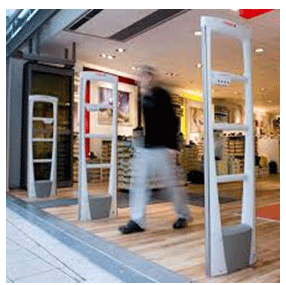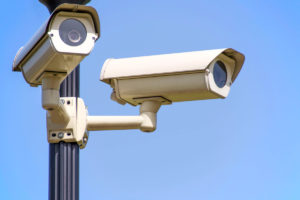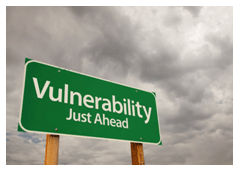How was 2016 for you? Was it a winning year or one full of loses? Were the personnel helping you during the holidays everything you expected? Many businesses forgo the employee screening process due to the cost associated with it, not knowing the cost is only a fraction of what a bad employee would cost them in a very short period of time. Read more by following the links below.
Changes in Shoplifting Penalties Make It Tougher for Retailers
Retail shoplifting penalties are undergoing changes. They aren’t all good.
Most readers of the LPM Insider are probably pretty familiar with shoplifting, its definition, its negative impact on retail operations and profitability and the shoplifting penalties for their state. It would be a lengthy process to learn the laws of every state and their shoplifting penalties because of the vast differences and constant change. Shoplifting laws have changed significantly in recent years—but rarely to the benefit of the retail industry.
Shoplifting and petty theft are criminal offenses that are frequently thought of as interchangeable, as they share common elements. Each crime requires the perpetrator to take something valued at or below a certain dollar amount, with the intent to permanently keep it, usually constituting a misdemeanor crime. The taking of something valued over that predetermined amount (as described by law) constitutes grand theft, which is a felony. State laws vary on the cutoff between petty theft and grand theft, and the shoplifting penalties assigned to those crimes vary by the amount stolen and by state. But, in general, to qualify for petty or grand theft, certain criteria must apply:
- The victim of the crime had a “possessory interest” in the stolen item
- The property was “taken away”
- The victim did not agree to the taking
The defendant intended to permanently deprive the victim of their interest in the property.
Businesses rally to prevent shoplifting
Tucson, AZ — Serial shoplifters cost business owners in Pima County $5.91 million a year. On Wednesday, the Pima County Attorney, law enforcement, and local retailers partnered together for the new “We Watch, We Prosecute” campaign to stop thieves.
2016 was the first year ever that 100% of retailers say they were victims of organized retail theft, according to a study by the National Retail Federation.
Police say 80% of organized shoplifters steal because of drug addiction.
The Tucson Metro Chamber brought together retailers, law enforcement and prosecutors to form the Coalition Against Retail Theft (CART).
CART’s “We Watch, We Prosecute” campaign will:
Educate retailers and consumers on protecting themselves from organized theft through workshops.
Increase tools for retailers to identify and help prosecute organized retail thieves by working more with law enforcement.
Resources like signs warning thieves of surveillance cameras to deter theft.
Background Screening As a Commitment to Public Safety
BUSINESS SOLUTIONS The need to hire the most qualified candidate has never been greater. Companies that utilize background screens demonstrate their commitment to ensuring safety.
The need to hire the most qualified candidate, and the inherent risk in hiring the wrong candidate, has never been greater.
What’s at stake
Workplace violence, unethical business practices and misleading résumés are on the rise. The costs of fraud, embezzlement, theft and violence are a multibillion-dollar drain on our economy, bleeding organizations both large and small.
Furthermore, negative publicity associated with negligent hiring — especially as the result of a less than thorough background check, or worse, no background check — can devastate the very foundation of a trusted organization. Now more than ever, companies should be using regulated, professional background screeners.
Less expensive than you think
The most common reason among employers for not conducting background screens is cost. That background screen cost, however, represents a fraction of the cost involved in turnover, termination, re-recruiting, re-hiring and re-training. And that’s best-case scenario for a bad hire.

 The busiest shopping season of the year is almost done.
The busiest shopping season of the year is almost done. Light-When someone is looking to do no good to your property, they feel more secure if it looks like no one is home. The key is to confuse them and make them feel unsure. Remember, most burglars are lazy. If they are not sure about your house, they will move on. So you should have at least two light timers (three is better) set up and running seven days a week. These should be in different areas of the home and should come on and off at different times. Use the random or security feature found on most timers. This will vary the on/off time every day just a little in case someone is watching the house for a pattern.
Light-When someone is looking to do no good to your property, they feel more secure if it looks like no one is home. The key is to confuse them and make them feel unsure. Remember, most burglars are lazy. If they are not sure about your house, they will move on. So you should have at least two light timers (three is better) set up and running seven days a week. These should be in different areas of the home and should come on and off at different times. Use the random or security feature found on most timers. This will vary the on/off time every day just a little in case someone is watching the house for a pattern.  e cost. Shop around for quality units. A few things to consider when purchasing:
e cost. Shop around for quality units. A few things to consider when purchasing: After a long and contested election cycle, a new president will be inaugurated and with this result, some experts are predicting the economy will begin to improve significantly.
After a long and contested election cycle, a new president will be inaugurated and with this result, some experts are predicting the economy will begin to improve significantly. customer transaction.
customer transaction. Many stores, public places, and government
Many stores, public places, and government Police Departments across the nation are busy this holiday season launching operations aiming at catching shoplifters.
Police Departments across the nation are busy this holiday season launching operations aiming at catching shoplifters. The holiday season is officially under way and your stress level is about to go into overload. When we’re overly stressed bad things happen to us mentally, emotionally and physically: headaches, digestive issues, eating too much, concentration problems, decreased impulse control, increased emotional sensitivity, poor planning ability and sleep disturbances.
The holiday season is officially under way and your stress level is about to go into overload. When we’re overly stressed bad things happen to us mentally, emotionally and physically: headaches, digestive issues, eating too much, concentration problems, decreased impulse control, increased emotional sensitivity, poor planning ability and sleep disturbances.
 Are they asleep at the switch? Do they care? Have you trained them how you want the shoplifting deterrence program in your store to work and what their roll in it is? This is not something you can put off. It’s like saving money in an account. You got to start. If you are one of Loss Prevention Systems Customers already, then you know this. That is why we conduct live, personalized shoplifting prevention and loss prevention training for our customers.
Are they asleep at the switch? Do they care? Have you trained them how you want the shoplifting deterrence program in your store to work and what their roll in it is? This is not something you can put off. It’s like saving money in an account. You got to start. If you are one of Loss Prevention Systems Customers already, then you know this. That is why we conduct live, personalized shoplifting prevention and loss prevention training for our customers.  This is the best time for retailers. We make a good chunk of our profits during the last 3 months of our fiscal year. Walk into any major retailer right now and you’ll already see a litany of holiday themed gifts, home décor and all things red and green. We also tend to beef up our staff this time of year as well. Some of us hire part-time works, some may even add a full-time position or two and a great many of us will employ temporary workers. The threat of employee theft also peaks around this time as well.
This is the best time for retailers. We make a good chunk of our profits during the last 3 months of our fiscal year. Walk into any major retailer right now and you’ll already see a litany of holiday themed gifts, home décor and all things red and green. We also tend to beef up our staff this time of year as well. Some of us hire part-time works, some may even add a full-time position or two and a great many of us will employ temporary workers. The threat of employee theft also peaks around this time as well. 